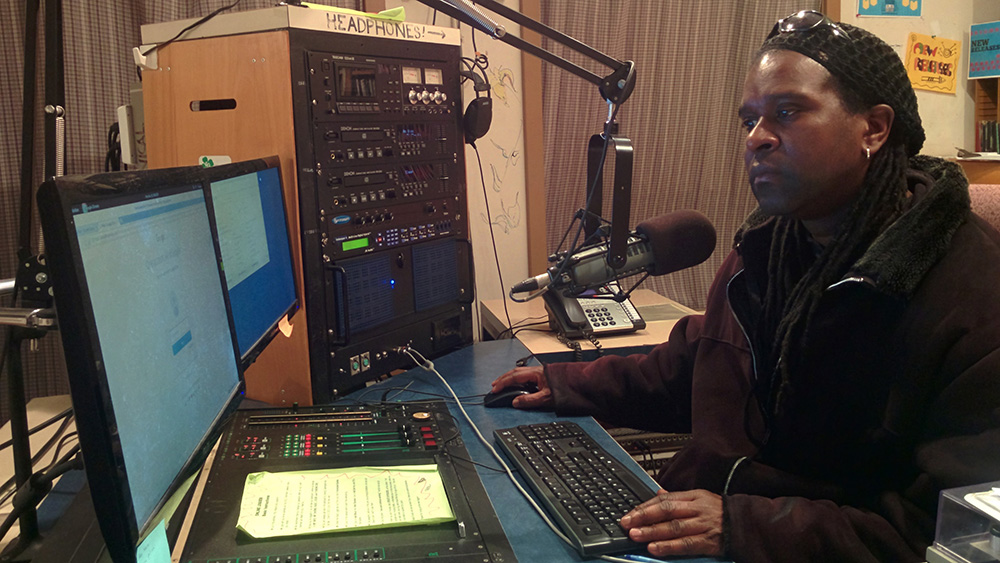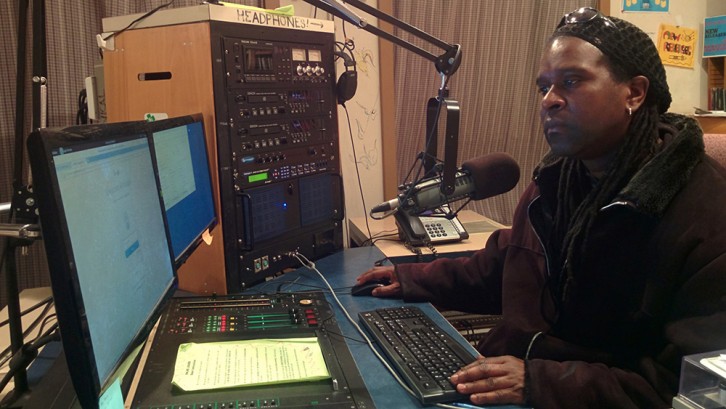Arts
Prisoners find their voice through poetry
CKDU radio show provides inmates with the opportunity for artistic release.

caption
Sobaz Benjamin at work in the CKDU studio
caption
Sobaz Benjamin at work in the CKDU studio.Prisoners in the Burnside jail are using a radio call-in show to perform their works on air. Youth Now Radio started as a radio show for at-risk youth in 2008. Although the main target is Nova Scotian facilities, inmates can call-in from all over Canada to recite poetry and rap. They can also send messages to their loved ones.
“The way I look at Youth Now is young people having a platform and an opportunity to say what’s on their hearts and minds,” said founder Sobaz Benjamin.
Youth Now is a part of the In My Own Voice Arts Association (iMOVe), an organisation that works to help marginalised youths express themselves through art. Benjamin said Youth Now was the first step to creating iMOVe.
“I had used the arts in my own life to address my issues, my internal conflict,” said Benjamin. “And it had proven to be very useful to me as a healing tool.”
How it began
In 2011, the first inmate who called Youth Now to recite his poem was Aidan Cromwell from the Central Nova Scotia Correctional Facility (CNSCF) in Burnside. After that, more inmates called in to perform on air.
“The inmates would stay out of trouble just so they can have the opportunity to share their thoughts on the show,” said Benjamin. “As you can imagine, their writings are very raw and their situations are not the best.”
Former Halifax poet laureate and activist El Jones has worked with Benjamin and Youth Now Radio for seven years. She said Youth Now reaches out to people who don’t have the support they need.
“It’s a place for people to talk about their story and their situation,” said Jones. “It helps them respect boundaries and think about their actions and that’s a necessary skill for them to have when their sentence is over.”
Negative reaction from public
Benjamin said there are people who think incarcerated individuals don’t deserve to be heard.
“They would say, why should we provide you [the inmates] with this type of venue when you’ve caused the harm that you’ve caused,” he said.
Mike Saulnier has been in and out of the CNSCF since 2012. He said he hates being away from his four-year-old daughter and calls jail a lose-lose situation.
“We don’t deserve to be treated like animals,” he said. “We’re all human. No matter the crime, we’re not in jail to be judged. We’re already being punished.”
Jones said critics of the show are wrong. She said the only way to properly rehabilitate prisoners is to give them a space to talk.
No turning back
Mariam Al Nasrallah has volunteered with iMOVe for a year. She said she understands what it feels like to be put down.
“People see my hijab before they see me and if you look at the news now, I’m supposed to be a terrorist,” she said. “These prisoners have a lot to say and without the help of Youth Now, they wouldn’t have that chance.”
Jones said Youth Now is about starting a community and finding ways to continue that community.
“People in jail are pushed away from our community. They’re literally put away,” she said. “So we want to show them there are people out there they can connect with.”
Al Nasrallah said her initial opinion about inmates has changed since she started volunteering. She said she never connected with them on a personal level before she heard them perform.
“Just because they served time or are still serving time doesn’t mean that’s who they are,” Al Nasrallah said. “They’re still a part of society just like anyone else.”
About the author
Sarah Poko
Sarah Poko is currently a Masters of Journalism student at the University of King's College. Originally from Nigeria, Sarah has a keen interest...

C
Catherine Meyers
S
Sarah Poko
C
Catherine Meyers
S
Sarah Poko